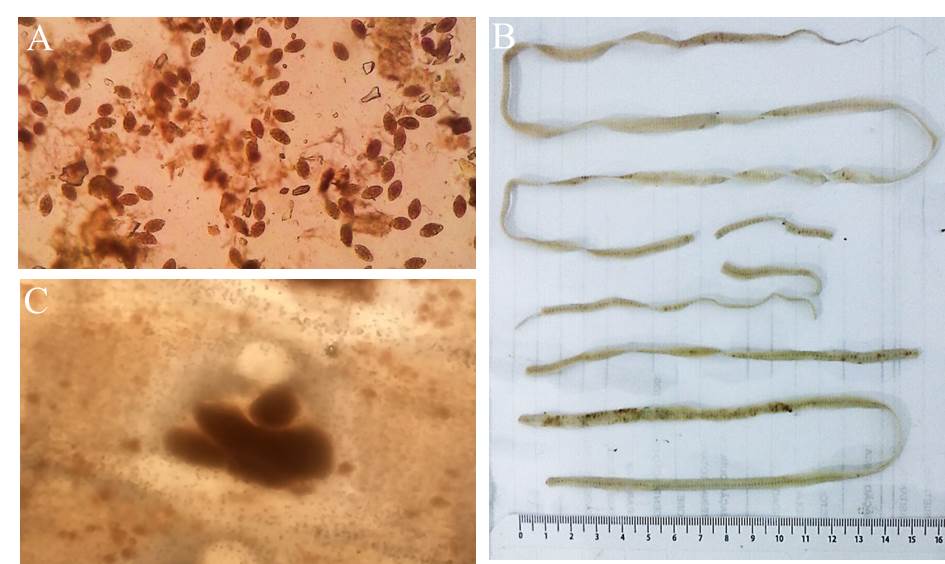Spirometra mansonoides from a domestic cat in northeastern Brazil: case report
DOI:
https://doi.org/10.21708/avb.2020.14.3.9389Abstract
Class Cestoda, in addition to causing problems for the health of animals, has been very relevant for human public health due to the zoonotic character of some species. In reporting a case of a domestic cat diagnosed with Spirometra mansonoides in northeastern Brazil, we demonstrate the importance of the association among different diagnostic techniques in the identification of the parasite, as well as report the presence of this parasite in domestic cats in the Northeast region. An old female feline with limited mobility was rescued and clinically evaluated. The observed bowel loop thickening and cachexia were suggestive of parasitosis, but the diagnosis and therapy were initially concentrated only on the fracture of a limb. Two months after the first diagnosis, the animal spontaneously expelled a parasite in its stool. Eggs and an adult parasite were found and identified by the association of diagnostic techniques such as coproparasitological and morphological studies. The case was the first to identify the species in the region and to signal the epidemiological surveillance of the zoonotic potential of the specimen.
Downloads

Downloads
Pubblicato
Fascicolo
Sezione
Licenza
Autores que publicam na Acta Veterinaria Brasilica concordam com os seguintes termos: a) Autores mantém os direitos autorais e concedem à revista o direito de primeira publicação, com o trabalho simultaneamente licenciado sob a Licença Creative Commons Attribution que permite o compartilhamento do trabalho com reconhecimento da autoria e publicação inicial nesta revista. b) Autores têm autorização para assumir contratos adicionais separadamente, para distribuição não-exclusiva da versão do trabalho publicada nesta revista (ex.: publicar em repositório institucional ou como capítulo de livro), com reconhecimento de autoria e publicação inicial nesta revista. c) Autores têm permissão e são estimulados a publicar e distribuir seu trabalho online (ex.: em repositórios institucionais ou na sua página pessoal) a qualquer ponto antes ou durante o processo editorial, já que isso pode gerar alterações produtivas, bem como aumentar o impacto e a citação do trabalho publicado (Veja O Efeito do Acesso Livre).


 Esta obra está licenciada com uma Licença
Esta obra está licenciada com uma Licença 